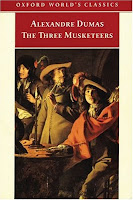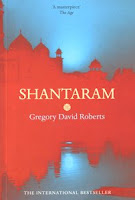
I started reading this book
for a bizzare reason (thanks Lic), but I'm glad I did. It may well be the best use of c**t by a female character as claimed:
You want to talk cranky, coitus interruptus takes me well beyond cranky. My engorged labia felt like they were pressing on my brain - what there was of my brain - and if I didn't get to fuck someone, something now - a vampire would do - I was going to fucking explode. My cunt ached like a bruise.
Whoah.
That quote is actually a bit misleading - one of the things I liked the most about this book was that it
wasn't a tragic teen love story between an impossibly beautiful vampire and a human (I'm looking at you, Meyer), and
wasn't chock-full of sexual tension. The vampire Constantine is seen by Sunshine as a menacing, terrifying figure, an embodyment of evil and darkness. Sunshine has created a bond with him, but she isn't sure it was a good idea, and he isn't wild about it either.
I have two main complaints. The first is style. A large amount of the story is told in an internal monologue, with very little actual conversation and interaction between sunshine and other characters. Character development suffers, and I could have lived with that, but it also destroys the flow of the most exciting parts of the book. Here is a section from the climax, where Sunshine is in the middle of a battle, covered in blood, and decides it is a good time to embark on a long monologue about vampire fiction she read as a kid:
Blood stings when it gets in your eyes. And it's viscous, so it's hard to blink out again. It may not only be because the blood stings that you're weeping.
I have always been afraid of more things than I can remember at one time. Mom, when I was younger, and still admitted to some of them, said that it was the price of having a good imagination, and suggested I stop reading the Blood Lore series...
McKinley has a parentheses problem. Take a look at page 13 and 14 - there isn't a paragraph without a lengthy bit of text, or even a few full sentences inside parentheses.
My second main complaint is that McKinley barely explains
anything properly and didn't write a sequel when there were so many interesting things I wanted to find out (beware tharr be spoilers ahead):
- Who/what is Mel? Some kind of sorcerer? A vigilante? What do all his tatoos do? Why doesn't he care about what Sunshine is doing? She likes that he doesn't ask questions, I think it is weird.
- Is her grandmother alive?
- What the hell is a bad spot? How do you sense one? What does the special SOF car do that allows you to drive through one?
- What happened in the Voodoo wars? Who was fighting? Just humans vs. vamps or all the 'Others'? What happened to all the other cities?
- Is the goddess of pain evil? What is her deal? Why is she called that?
- How are Bo and Con actually different? Why are they fighting? Sure Sunshine is fighting out of some self interest, but why doesn't she ask him about it?
Arrrrgggggh!
So many times Sunshine asks a question in her head, but is too gutless to voice it:
I wanted to know why: what would scar a vampire? Another vampire's try for your heart?...But I didn't ask
I wanted to know too! Ask for me goddammit!
McKinley has a
massive whinge on her blog about people hounding her for a sequel. Well sorry for liking your book Ms. McKinley, and maybe you should explain things next time! McKinley has created an incredibly rich world of magic, part-bloods, vampires, wardskeepers, secret police, and so much more, yet she claims not to have any ideas for a sequel. Come on! I think the real story is that she got sick of talking and thinking about the book on the tour, and now can't face writing a sequel.
I loved the world McKinley created, if only there was more.
4 stars





































